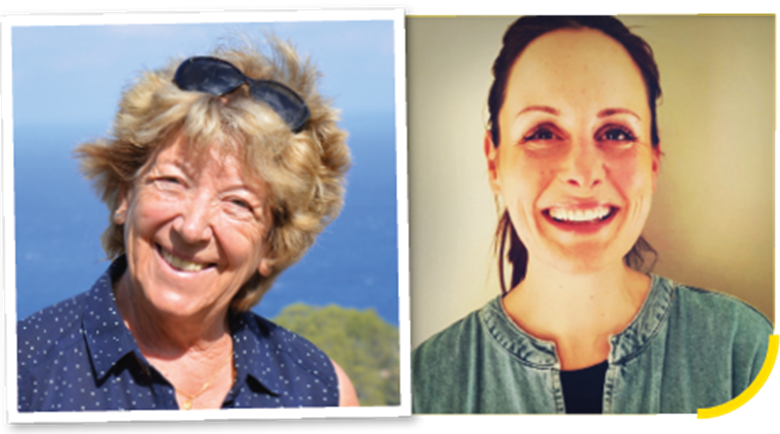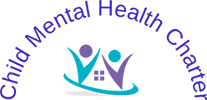June 2021
Nicole Weinstein interviews Monika Jephcott, and Sophia O’Neill for Nursery World.
nurseryworld.co.uk
Interview – Monika Jephcott and Sophia O'Neill of Play Therapy UK
Monika Jephcott (left), chief executive of Play Therapy UK (PTUK), has spent six years lobbying the Government to ensure children are at the forefront of the reform of the 1983 Mental Health Act, scheduled to become law during this Parliament. Sophia O’Neill, child and family therapist (right), who works as a lead play therapist at Treetops Therapy and teaches a postgraduate Master’s course on Practice Based Play Therapy, is PTUK’s spokesperson.

WHAT IS PTUK CALLING FOR?
MJ We are members of the All-Party Parliamentary Group (APPG) on a Fit and Healthy Childhood, and in March 2019, we published the Child Mental Health Charter with the aim of convincing the Government to introduce a Mental Health Bill to support the one in ten children and young people thought to be affected by mental health problems. This got delayed, because of Covid, and now the situation is even more dire.
The statistics from the APPG’s latest report, The Covid generation: A mental health pandemic in the making, reveal that one in seven primary-school-aged children had a diagnosable mental illness in 2020. What’s worse is that as the Act goes through the parliamentary processes to become a Bill – it is currently a White Paper – there is less and less mention of children and young people.
WHAT IS THE BACKGROUND TO THE REFORM OF THE MENTAL HEALTH ACT 1983?
SO The Act has not been fully updated for nearly 40 years, although the Mental Health Act 2007 made changes. The reform of the Act offers a once-in-a-generation opportunity to bring the needs of [children in] the 21st century to the forefront. So, in one respect, we are on the cusp of real change. Never has there been a better time to lobby for children’s right to mental health services and funding. We were pleased that the Queen’s Speech included measures to be brought forward to support the health and wellbeing of the nation, including to ‘improve mental health’. But we still have a long way to go with our work with the Child Mental Health Charter and the APPG to lobby MPs to ensure that children’s right to adequate mental health care is enshrined in law.
After all, we were extremely disappointed that key measures for children listed in the initial consultation paper in 2017 [the Green Paper] were omitted from the latest [White Paper] consultation published in January 2021. Without a commitment in the Act itself, it will not receive the Government funding it needs to change children’s lives on the ground, and it will be subject to funding being funnelled elsewhere.
HOW DOES THE WHITE PAPER FALL SHORT OF ENSURING CHILDREN ARE AT THE HEART OF THIS REFORM?
SO For a start, a lot of the proposals for children and young people set out in the Green Paper have been omitted. Their needs around mental health are only referred to in terms of end-of-line, clinical care. For example, when they are in a detention centre or in confined hospital conditions. It does not represent an adequate legislative pathway for the mental health needs of children and young people, especially during Covid.
MJ We have long argued for a preventative approach to children’s mental health, with earlier help available to primary school children. We also believe it is vital for therapeutic support to be delivered by trained therapists registered with independent Government-approved agencies, such as the Accredited Register programme, the Professional Standards Authority for Health and Social Care (PSA), or the Health and Care Professions Council.
HOW HAVE CHILDREN’S NEEDS BEEN FORGOTTEN IN THE WHITE PAPER?
SO The Green Paper committed resources to recruiting therapists and supervisors, training teachers in mental health awareness, and ‘puts schools and colleges at the heart of (our) efforts to intervene early and prevent problems escalating’. Yet this cannot be found in the White Paper.
The Green Paper describes mental health leads in schools linking with parents and carers, and for mental health support teams to be supervised in a cross-departmental spirit by NHS children and young people staff. Yet this cannot be found in the White Paper. The Green Paper focused on the ‘right help in the right setting’, on early intervention and school-based therapy and support. Yet this cannot be found in the White Paper. In the White Paper there is no recognition of the value and existence of the current workforce in schools, including clinically trained therapists and professional counsellors; work that with investment and extension could deliver the Green Paper’s aims of early intervention and prevention.
We have submitted our response to the White Paper consultation, outlining these issues, and the Government is due to respond to the consultation later this year, paving the way for future legislation.
HOW HAS COVID EXACERBATED CHILDREN’S MENTAL HEALTH NEEDS? WHAT HAVE PLAY THERAPISTS OBSERVED AND WHY IS THE SITUATION AT CRISIS POINT?
MJ We know that young children and babies from the start need three things to have secure attachment: smell, touch and sound. Babies born in Covid may not have heard the soft voice of grandma; they might have just heard shouting and abusive voices while they have been trapped in inner-city apartments. They may have learnt to internalise their trauma as a result of their needs not being met by stressed, desperate parents.
Right from babyhood, we are seeing a lot of cases where the attachment is not happening. And that will show in ten to 20 years’ time, unless they have therapy or if somebody notices that they might need help, or they go for help when they are older. We are in a situation now where we need to train a workforce of play or child psychotherapists to cope with this increase of mental health problems in children.
